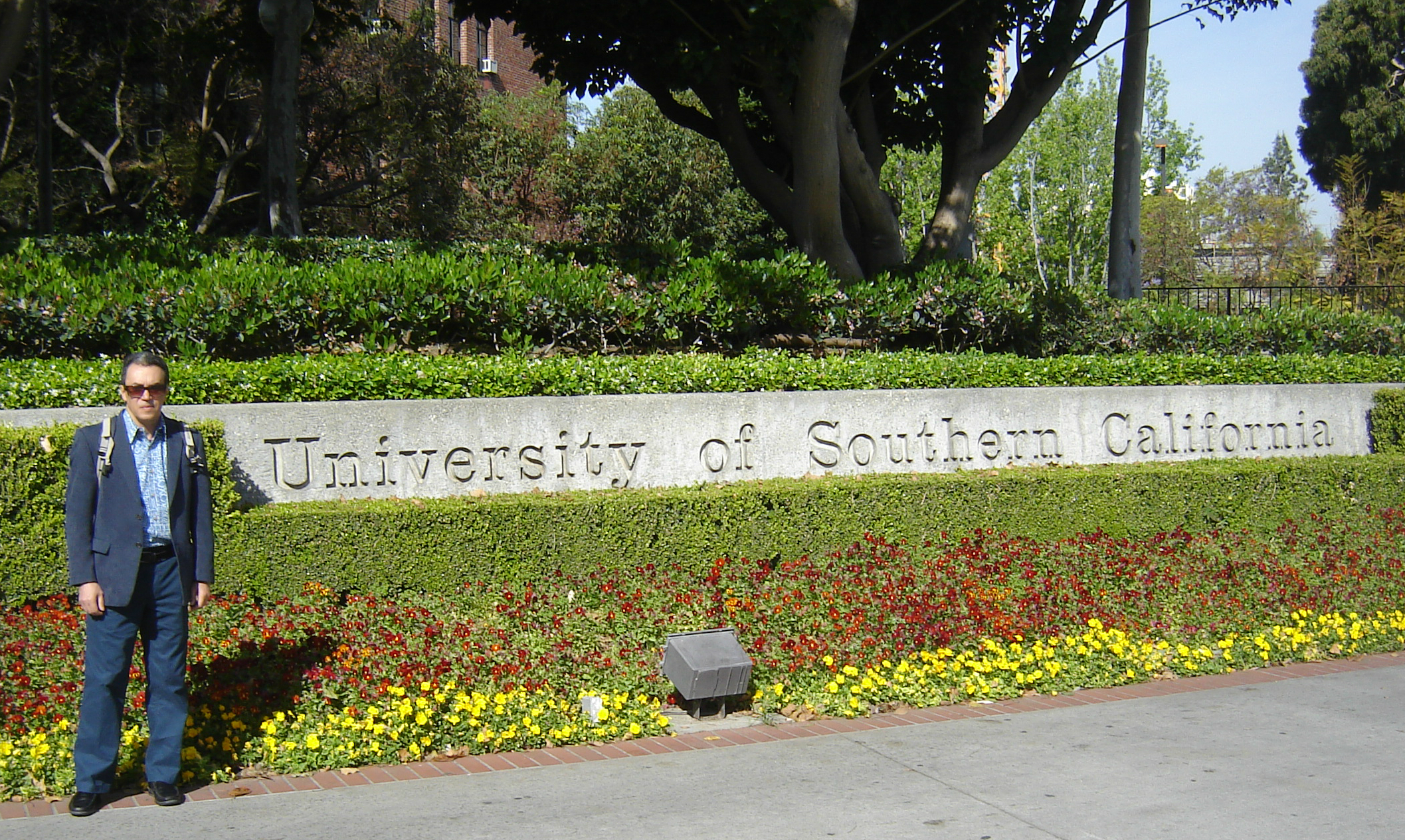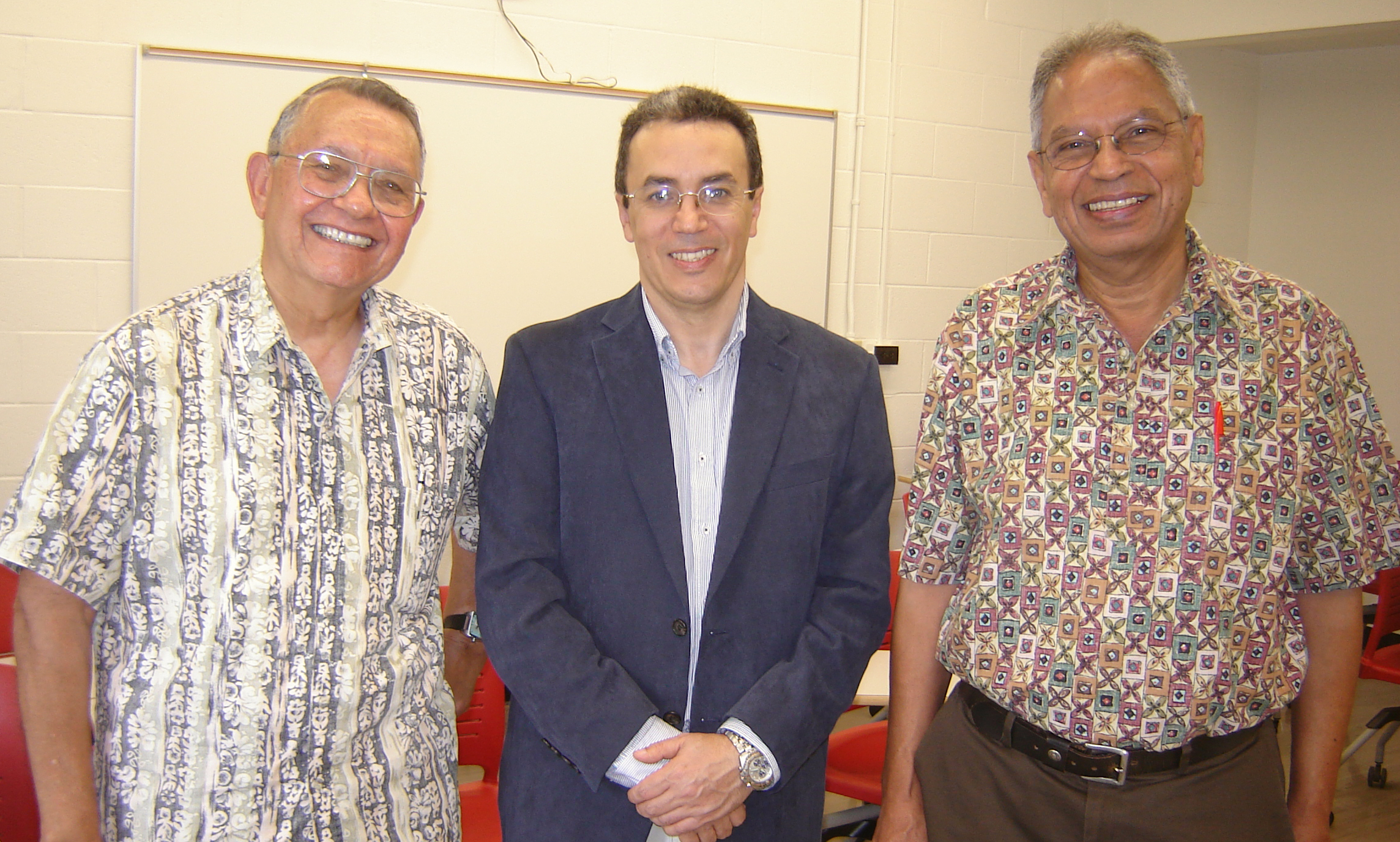Increasing International Collaboration Through the Outreach Lecturing Fund
Mohamed Fathi Ben Hamouda, Assistant Professor at National Center for Science and Nuclear Technology
2014-2015 Fulbright Visiting Scholar from Tunisia to Duke University
Outreach Lecturing Fund participant to University of Hawaii at Manoa & University of Southern California
 My Fulbright Visiting Scholar grant during 2014-2015 has provided me an opportunity to work at the Division of Earth and Ocean Sciences and Nicholas School of the Environment at Duke University for a period of ten months. Upon arrival from Tunisa, I was invited to attend a reception to welcome new Fulbright Visiting Scholars at Duke University for the academic year. In addition to joining the faculty at Duke University, I was able to use an Outreach Lecturing Fund (OLF) travel award to connect with students and scholars at the University of Hawaii at Manoa and the University of Southern California.
My Fulbright Visiting Scholar grant during 2014-2015 has provided me an opportunity to work at the Division of Earth and Ocean Sciences and Nicholas School of the Environment at Duke University for a period of ten months. Upon arrival from Tunisa, I was invited to attend a reception to welcome new Fulbright Visiting Scholars at Duke University for the academic year. In addition to joining the faculty at Duke University, I was able to use an Outreach Lecturing Fund (OLF) travel award to connect with students and scholars at the University of Hawaii at Manoa and the University of Southern California.
The OLF travel award is an exciting opportunity that allows Fulbright Visiting Scholars who are currently in the United States to travel to other higher education institutions across the country for academic and cultural exchange. The purpose of the OLF is to allow these scholars to share their specific research interests, speak on the history and culture of their home country, exchange ideas with U.S. students, faculty, and community organizations, become better acquainted with U.S. higher education, and create linkages between their home and host institutions and Fulbright. This also paves the way for future collaborations. I was very happy to receive the OLF award, which offered me the opportunity to visit the Department of Geology and Geophysics at the University of Hawaii at Manoa and the Department of Earth Sciences at the University of Southern California in Los Angeles where I gave lectures to students and faculty staff.
 On March 31, 2015, I reached Honolulu and was welcomed at the airport by Dr. Laxman Sharma, a post-doctoral research fellow at the Water Resources Research Center. The next day, we went straight to the department and I met my host, Professor Aly El-Kadi, and had an initial round of discussions about our mutual research interests. This was followed by my first lecture on the “Application of Isotope Hydrology in Groundwater Resources Management in Tunisia,” which was attended mainly by the graduate students and faculty members from the host department and the department of soil sciences. The lecture was followed by an interesting discussion session about project collaboration and future joint supervision of students. The lecture was recorded for the Water Resources Research Center. After the talk, I visited with Professor El-Kadi and his students the Fred Ohrt Water Museum. The tour takes place at the Kalihi Pumping Station, just a mile or so from Downtown Honolulu. After this visit we went to a field trip where we visited a dam installed on the watershed of a mountain located in western Honolulu. I was then invited by Professor El-Kadi to dinner with his colleague from the University of Hawaii. The food was very good and I enjoyed the typical Hawaiian dinner.
On March 31, 2015, I reached Honolulu and was welcomed at the airport by Dr. Laxman Sharma, a post-doctoral research fellow at the Water Resources Research Center. The next day, we went straight to the department and I met my host, Professor Aly El-Kadi, and had an initial round of discussions about our mutual research interests. This was followed by my first lecture on the “Application of Isotope Hydrology in Groundwater Resources Management in Tunisia,” which was attended mainly by the graduate students and faculty members from the host department and the department of soil sciences. The lecture was followed by an interesting discussion session about project collaboration and future joint supervision of students. The lecture was recorded for the Water Resources Research Center. After the talk, I visited with Professor El-Kadi and his students the Fred Ohrt Water Museum. The tour takes place at the Kalihi Pumping Station, just a mile or so from Downtown Honolulu. After this visit we went to a field trip where we visited a dam installed on the watershed of a mountain located in western Honolulu. I was then invited by Professor El-Kadi to dinner with his colleague from the University of Hawaii. The food was very good and I enjoyed the typical Hawaiian dinner.
On April 2, a lab tour was arranged where I could have a one-on-one interaction with students and get to know their research in more detail. The lab tour also provided an opportunity to see the research equipment available in the department. In the afternoon, I visited other laboratories at the University of Hawaii, including the radioactivity lab with Dr. Henrieta Dulaiova, assistant professor in the department of biology, Dr. Marek Kirs, assistant researcher at the Water Resources Research Center, and Dr Laxman Sharma. My second lecture on my current research area was titled the, “Problem of Salinity in Coastal Aquifers of Tunisia.” The lecture was also recorded for the Water Resources Research Center.
My third lecture was delivered on April 9 at USC in Los Angeles, titled “Isotope Hydrology, Salt Water Intrusion and Groundwater Resource Management in Tunisia." Since the students evinced interest in the talk, we had a very productive exchange and we discussed the results of studies related to the estimation of recharge rates of shallow aquifers in Tunisia. After the lecture, I was invited by Professor Doug Hammond to lunch with two students. In the afternoon, I visited the laboratories of the department of Earth Sciences and had a discussion with some of PhD students about their research. Afterwards, we discussed possibility of future collaboration with the potential implementation of scientific projects between our universities to study the shared aquifers in North Africa.
The OLF gave me an opportunity to exchange ideas with many U.S. researchers and create future collaborations, which I plan to pursue after my Fulbright.
